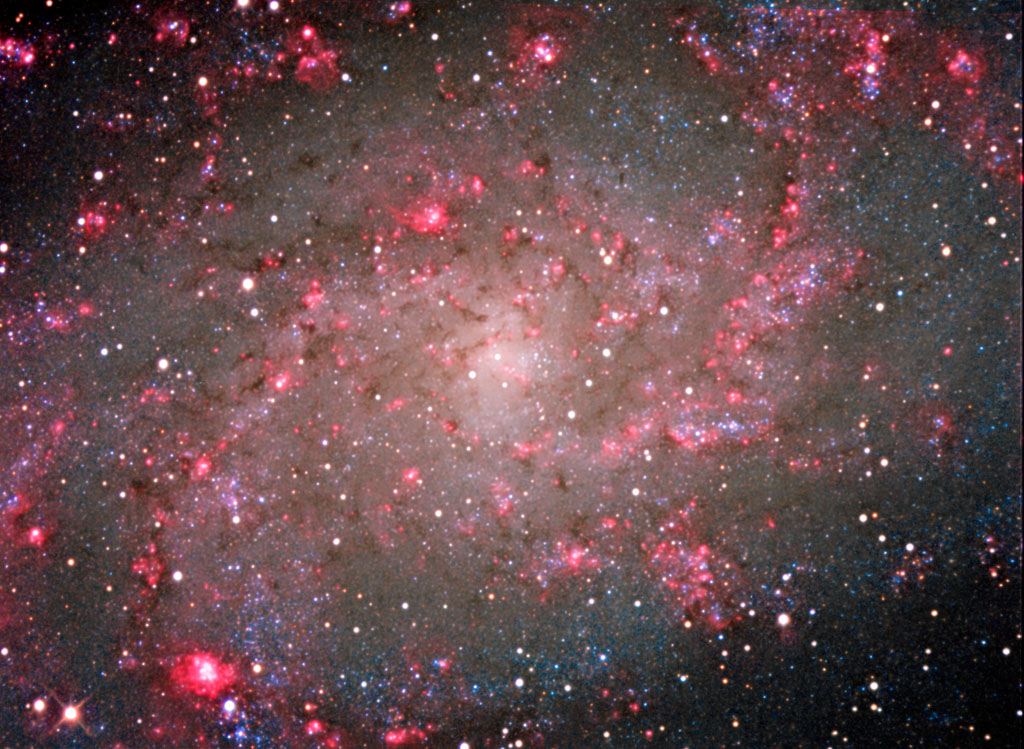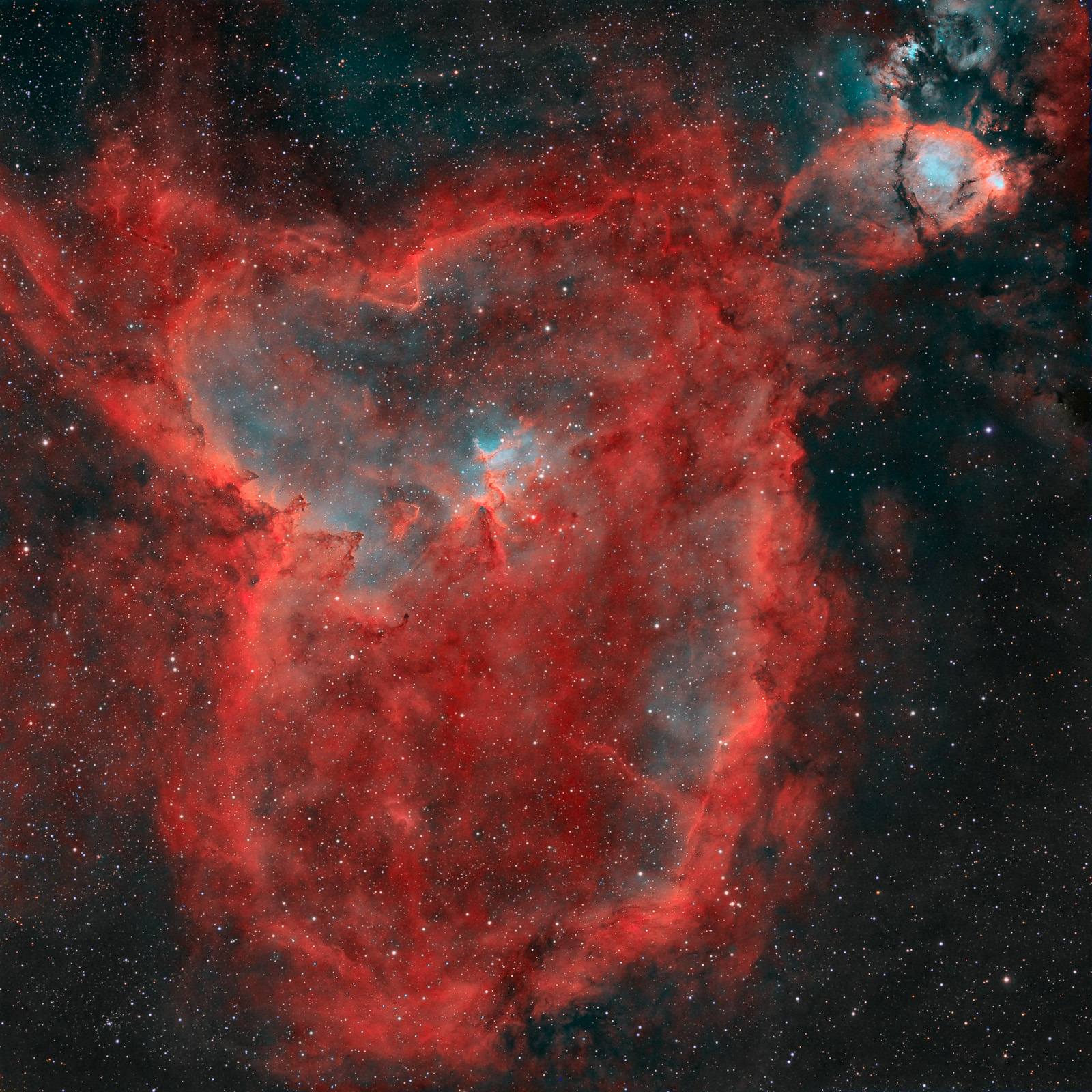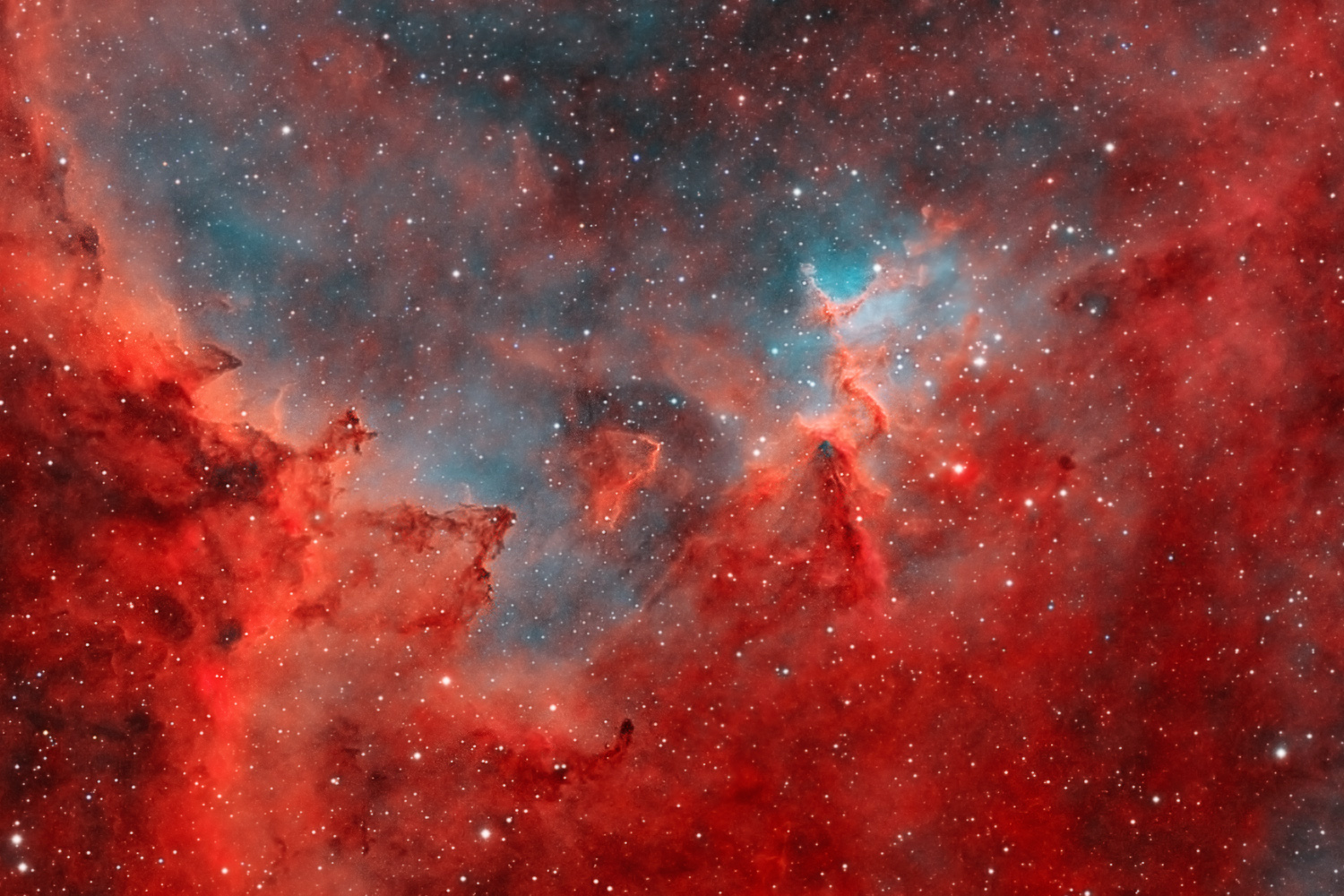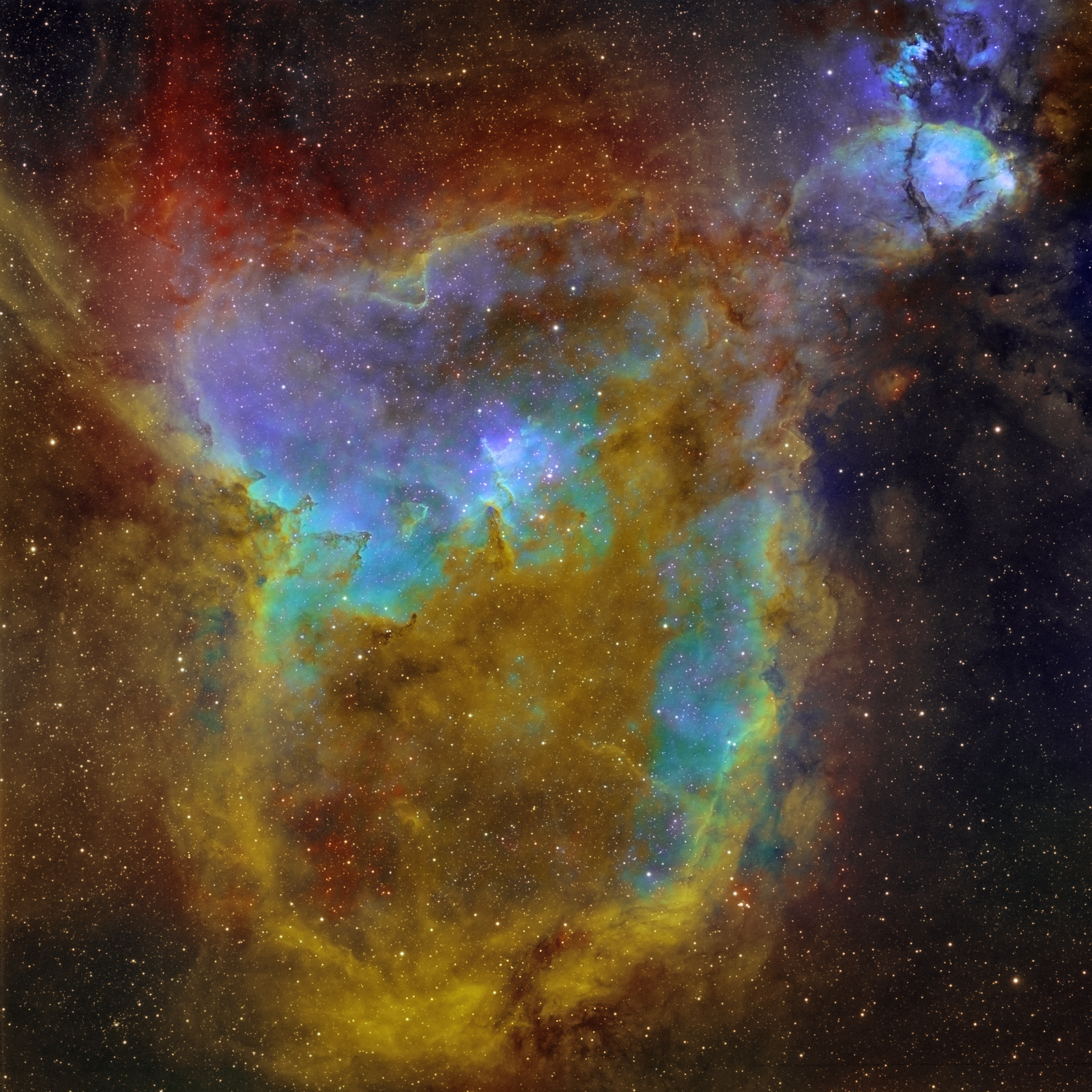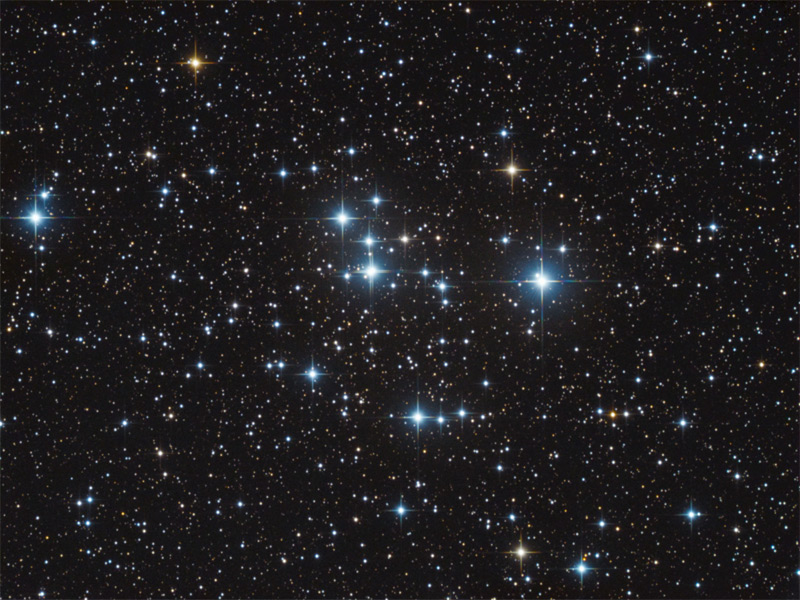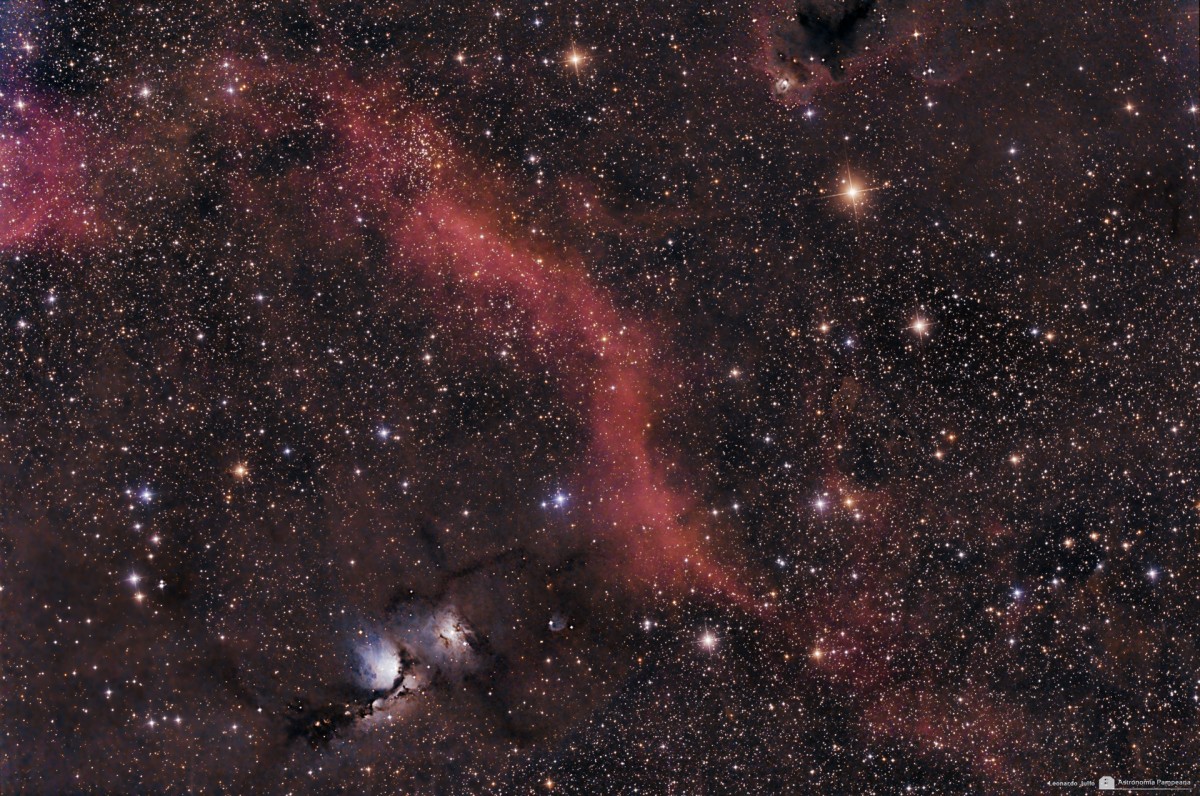Recent Submissions: 2011 January 24-27
Recent Submissions: 2011 January 24-27
_____________________________________________________________________________
Please post your images here for January 24-27.
If you need instructions on posting images, please see this thread.
Thank you!
_____________________________________________________________________________
<- Previous submissions
Orion Nebula Widefield
http://Sgastrophotography.com
Copyright: Salvatore Grasso and Josh Knutson
Please post your images here for January 24-27.
If you need instructions on posting images, please see this thread.
Thank you!
_____________________________________________________________________________
<- Previous submissions
Orion Nebula Widefield
http://Sgastrophotography.com
Copyright: Salvatore Grasso and Josh Knutson
-
zonalunar
- Ensign
- Posts: 38
- Joined: Wed Nov 17, 2010 8:26 pm
- Location: Alfinach - Puzol - Valencia
- Contact:
Re: Recent Submissions: 2011 January 24-27
Animation Central Zone Constellation Orion
http://www.zonalunar.com and http://www.caliu.fotografiaastronomica.com
Copyright: Alfonso Carreño and Ferran Bosch Animation created from the images in H-ALPHA and RGB realized from different localities of Spain. Image of the central zone of Orion's constellation, which contains the "Orion Nebula" M42, the popular "Horsehead Nebula" IC434 and B33, the "Flame Nebula" NGC2024.
A greeting.
http://www.zonalunar.com and http://www.caliu.fotografiaastronomica.com
Copyright: Alfonso Carreño and Ferran Bosch Animation created from the images in H-ALPHA and RGB realized from different localities of Spain. Image of the central zone of Orion's constellation, which contains the "Orion Nebula" M42, the popular "Horsehead Nebula" IC434 and B33, the "Flame Nebula" NGC2024.
A greeting.
Re: Recent Submissions: 2011 January 24-27
Copyright: Alexis M. Burkevics
-
Emil Ivanov
- Science Officer
- Posts: 122
- Joined: Fri Jan 07, 2011 1:49 pm
- Location: Vienna, Austria
- Contact:
Re: Recent Submissions: 2011 January 24-27
NGC 2237 (Rosette Nebula) in 7 colors
http://www.emilivanov.com
Copyright: Emil Ivanov This is a six channel combination of narrowband and RGB exposures.
The base of the image are the S II, Ha and O III exposures respectively mapped as deep red, red and cyan, which gives a more realistic look to the narrowband image. The RGB image is overlayed to reduce the contrast in the nebula and to improve the stars' colors.
Details: S II = 60 min; Ha = 60 min; O III = 60 min; R = 30 min; G = 30 min; B = 30 min. ASA N12 Astrograph, DDM85 Mount, SBIG STL 11000 M Camera.
Higher resolution: http://www.emilivanov.com/CCD%20Images/ ... ping_b.jpg
http://www.emilivanov.com
Copyright: Emil Ivanov This is a six channel combination of narrowband and RGB exposures.
The base of the image are the S II, Ha and O III exposures respectively mapped as deep red, red and cyan, which gives a more realistic look to the narrowband image. The RGB image is overlayed to reduce the contrast in the nebula and to improve the stars' colors.
Details: S II = 60 min; Ha = 60 min; O III = 60 min; R = 30 min; G = 30 min; B = 30 min. ASA N12 Astrograph, DDM85 Mount, SBIG STL 11000 M Camera.
Higher resolution: http://www.emilivanov.com/CCD%20Images/ ... ping_b.jpg
Last edited by Emil Ivanov on Mon Jan 24, 2011 10:44 pm, edited 1 time in total.
-
Chris Schur
- Asternaut
- Posts: 2
- Joined: Mon Jan 17, 2011 3:23 pm
Re: Recent Submissions: 2011 January 24-27
Hydrogen in M33
http://www.schursastrophotography.com
Copyright: Chris Schur
M33 - Local Group Face on SpiralKnown also as NGC598, this 6th magnitude object is spread over a huge 70 x 40 arcminute field which we are looking at about half of it here in this image. Classed as a SA(s)cd spiral, it is inclined only 4 degrees to our line of sight. Its fairly neutral in color overall, with a B-V index of .55, which makes it somewhat "tawny". The core is very unconcentrated, and in fact we can see the bare nucleus near the center, surrounded by a dim yellowish disk with dark brownish dust lanes traceable all the way into the core. This galaxy has more free hydrogen than any other Local Group galaxy in the northern sky, and produces some very enlightening comparisons when additional exposures are added that enhances the hydrogen lines.
Images of Local Group galaxies tend to share a common characteristic with CCD images and my 12.5" - They almost always appear very granular or grainy looking. This is because we are resolving the galaxies individual stars, and even on the largest images here, the galaxy will show tiny blue and yellow stars down to the magnitude limit in huge numbers. There is not a piece of this image that does not show this granular appearance in fact. On the left standard RGB image, the yellow core is surrounded by blue highlights in the arms. These are clusters of star clusters, known also as OB associations. They consist of dominantly blue supergiant stars with a maximum brightness of magnitude 17.5 and down to the images estimated limit of 22.5 magnitude. Only hinted at here is the amazingly complex interaction between the hydrogen and the OB associations. For this, we turn to the right image, that has been Halpha/Hbeta hydrogen enhanced.
Instrument: 12.5" f/5 Home made Newtonian
Platform: Astrophysics 1200 QMD
CCD Camera: SBIG 10XME NABG with Enhanced Water Cooling
Guider: SBIG ST4
Exposure: Ha+LRGB = 240:60:60:60
RGB Combine Ratio: 1: 1.05: 1.11
Filters: AstroDon RGB Tricolor
Location: Payson, Arizona
http://www.schursastrophotography.com
Copyright: Chris Schur
M33 - Local Group Face on SpiralKnown also as NGC598, this 6th magnitude object is spread over a huge 70 x 40 arcminute field which we are looking at about half of it here in this image. Classed as a SA(s)cd spiral, it is inclined only 4 degrees to our line of sight. Its fairly neutral in color overall, with a B-V index of .55, which makes it somewhat "tawny". The core is very unconcentrated, and in fact we can see the bare nucleus near the center, surrounded by a dim yellowish disk with dark brownish dust lanes traceable all the way into the core. This galaxy has more free hydrogen than any other Local Group galaxy in the northern sky, and produces some very enlightening comparisons when additional exposures are added that enhances the hydrogen lines.
Images of Local Group galaxies tend to share a common characteristic with CCD images and my 12.5" - They almost always appear very granular or grainy looking. This is because we are resolving the galaxies individual stars, and even on the largest images here, the galaxy will show tiny blue and yellow stars down to the magnitude limit in huge numbers. There is not a piece of this image that does not show this granular appearance in fact. On the left standard RGB image, the yellow core is surrounded by blue highlights in the arms. These are clusters of star clusters, known also as OB associations. They consist of dominantly blue supergiant stars with a maximum brightness of magnitude 17.5 and down to the images estimated limit of 22.5 magnitude. Only hinted at here is the amazingly complex interaction between the hydrogen and the OB associations. For this, we turn to the right image, that has been Halpha/Hbeta hydrogen enhanced.
Instrument: 12.5" f/5 Home made Newtonian
Platform: Astrophysics 1200 QMD
CCD Camera: SBIG 10XME NABG with Enhanced Water Cooling
Guider: SBIG ST4
Exposure: Ha+LRGB = 240:60:60:60
RGB Combine Ratio: 1: 1.05: 1.11
Filters: AstroDon RGB Tricolor
Location: Payson, Arizona
3 Versions of IC 1805 - Heart nebula
IC 1805 - Heart Nebula
Detailed view - Heart of the Heart colors mapped:
light red = H-alpha
cyan = OIII
dark red = SII
IC 1805 in Hubble palette colors mapped:
red = SII
green = H-alpha
blue = OIII
Regards
Rolf
http://www.stern-fan.de
(english version available)
Detailed view - Heart of the Heart colors mapped:
light red = H-alpha
cyan = OIII
dark red = SII
IC 1805 in Hubble palette colors mapped:
red = SII
green = H-alpha
blue = OIII
Regards
Rolf
http://www.stern-fan.de
(english version available)
Re: Recent Submissions: 2011 January 24-27
Chris Schur, thank you very much for your fascinating image and your detailed description of M33! 


As a former Color Commentator and very much still a color freak, I must, however, comment on what you said here:
The three brightly colored "stars" in a row are, from left to right, Mars, Pollux and Castor. The overall color balance is too blue, but the picture makes it obvious, nevertheless, that Pollux is not a brightly red star.
As for "blue" galaxies, their integrated color is never bluer than that of an F star. The bluest spiral galaxy I can think of off hand is NGC 3310, whose color index is +0.33. That makes the galaxy bluer than bright "Winter Triangle star" Procyon, but redder than the second brightest star in the sky, Canopus. And yet, NGC 3310 is one of the bluest galaxies known.
My point is that galaxies are all fairly "neutral" in color. However, as galaxies go, M33 definitely falls into the "blue" category!
Ann
As a former Color Commentator and very much still a color freak, I must, however, comment on what you said here:
The integrated color of a galaxy is never saturated one way or another. Classic "red" galaxies typically have a color index around +1.0, similar to K0 star Pollux in color, which is not very red at all. It is admittedly redder in color than the Sun.Its fairly neutral in color overall, with a B-V index of .55, which makes it somewhat "tawny".
The three brightly colored "stars" in a row are, from left to right, Mars, Pollux and Castor. The overall color balance is too blue, but the picture makes it obvious, nevertheless, that Pollux is not a brightly red star.
As for "blue" galaxies, their integrated color is never bluer than that of an F star. The bluest spiral galaxy I can think of off hand is NGC 3310, whose color index is +0.33. That makes the galaxy bluer than bright "Winter Triangle star" Procyon, but redder than the second brightest star in the sky, Canopus. And yet, NGC 3310 is one of the bluest galaxies known.
My point is that galaxies are all fairly "neutral" in color. However, as galaxies go, M33 definitely falls into the "blue" category!
Ann
Color Commentator
Re: Recent Submissions: 2011 January 24-27
NGC6520 Open Cluster and B86
http://www.starkeeper.it/NGC6520.htm
Copyright: Leonardo Orazi
[attachment=3]NGC6520 Open Cluster and B86_Orazi.jpg[/attachment][/i]
22° Halo
http://www.galacticimages.com
Copyright: John Chumack
[attachment=2]ChumackSun22Halo_12111_HRweb.jpg[/attachment][/i]
Milky Way Sky
http://www.bretwebsterimages.com/
Copyright: Bret Webster
[attachment=1]IMG_7648 Reflections - Asterisk.jpg[/attachment][/i]
Hawaiian Sunset
Copyright: Claudio N. Verani
[attachment=0]Hawaiian sunset.jpg[/attachment][/i]
http://www.starkeeper.it/NGC6520.htm
Copyright: Leonardo Orazi
[attachment=3]NGC6520 Open Cluster and B86_Orazi.jpg[/attachment][/i]
22° Halo
http://www.galacticimages.com
Copyright: John Chumack
[attachment=2]ChumackSun22Halo_12111_HRweb.jpg[/attachment][/i]
Milky Way Sky
http://www.bretwebsterimages.com/
Copyright: Bret Webster
[attachment=1]IMG_7648 Reflections - Asterisk.jpg[/attachment][/i]
Hawaiian Sunset
Copyright: Claudio N. Verani
[attachment=0]Hawaiian sunset.jpg[/attachment][/i]
- Attachments
A closed mouth gathers no foot.
Re: Recent Submissions: 2011 January 24-27
I love your NGC6520 Open Cluster and B86 image, Leonardo Orazi. The stars are as plentiful as grains of sand on a beach, and like individual grains of sand on the Earth, the grains in the sky differ in color and size, too. And among the grains of sand is a blackened bit of sea weed. Just like on the Earth!
Wow! Imagine walking barefoot among the stars!
Ann
Wow! Imagine walking barefoot among the stars!
Ann
Color Commentator
Re: Recent Submissions: 2011 January 24-27
Infinite thanks Ann, as the stars of the pictureAnn wrote:I love your NGC6520 Open Cluster and B86 image, Leonardo Orazi. The stars are as plentiful as grains of sand on a beach, and like individual grains of sand on the Earth, the grains in the sky differ in color and size, too. And among the grains of sand is a blackened bit of sea weed. Just like on the Earth!
Wow! Imagine walking barefoot among the stars!
Ann
It 's my favorite, I always remember that each of us is special.
All the best,
Leo
-
marioweigand
- Ensign
- Posts: 64
- Joined: Tue Sep 28, 2010 8:48 pm
Re: Recent Submissions: 2011 January 24-27
Hi,
here are some impressions from the VLA in New Mexico.
The Very Large Array, NM
http://www.skytrip.de
Copyright: Mario Weigand
cheers
Mario
here are some impressions from the VLA in New Mexico.
The Very Large Array, NM
http://www.skytrip.de
Copyright: Mario Weigand
cheers
Mario
Re: Recent Submissions: 2011 January 24-27
The shot by Bret Webster with the milky way mimicking the arch is beautiful.
-Ben Cooper
http://www.launchphotography.com/
-Ben Cooper
http://www.launchphotography.com/
Re: Recent Submissions: 2011 January 24-27
Cone Nebula, Christmas Tree Cluster, and Fox Fur Nebula in Monoceros
http://lbuckphotos.smugmug.com/Nature/S ... jQu-X3.jpg
Copyright: Lee Buck
[attachment=3]Cone_Fox_Buck.jpg[/attachment][/i]
NGC 3293 and NGC 324: The Gem Cluster and the Gabriela Mistral Nebula
http://www.baytop-observatory.com/ccdim ... 203324.htm
Copyright: Rich Bowden
[attachment=2]NGC 3293_NGC 3324_Bowden.jpg[/attachment][/i]
NGC 3372: Eta Carinae Nebula
http://eder.csillagaszat.hu/eta_carinae_eder_en.html
Copyright: Iván Éder M47: Open Cluster in Puppis
http://astrophoton.com/M047.htm
Copyright: Bernhard Hubl NGC 1931: Nebula in Auriga
http://www.feraphotography.com/AM14/Ngc1931.html
Copyright: Bob and Janice Fera
[attachment=1]NGC1931_Fera.jpg[/attachment][/i]
M42: The Orion Nebula
Copyright: Eran Zgayer
[attachment=0]M42 COLOR -GREEN.jpg[/attachment][/i]
Northern Cygnus Mosaic
http://deepskyastrophotography.com/NEBU ... rican.html
Copyright: Scott Johnson
http://lbuckphotos.smugmug.com/Nature/S ... jQu-X3.jpg
Copyright: Lee Buck
[attachment=3]Cone_Fox_Buck.jpg[/attachment][/i]
NGC 3293 and NGC 324: The Gem Cluster and the Gabriela Mistral Nebula
http://www.baytop-observatory.com/ccdim ... 203324.htm
Copyright: Rich Bowden
[attachment=2]NGC 3293_NGC 3324_Bowden.jpg[/attachment][/i]
NGC 3372: Eta Carinae Nebula
http://eder.csillagaszat.hu/eta_carinae_eder_en.html
Copyright: Iván Éder M47: Open Cluster in Puppis
http://astrophoton.com/M047.htm
Copyright: Bernhard Hubl NGC 1931: Nebula in Auriga
http://www.feraphotography.com/AM14/Ngc1931.html
Copyright: Bob and Janice Fera
[attachment=1]NGC1931_Fera.jpg[/attachment][/i]
M42: The Orion Nebula
Copyright: Eran Zgayer
[attachment=0]M42 COLOR -GREEN.jpg[/attachment][/i]
Northern Cygnus Mosaic
http://deepskyastrophotography.com/NEBU ... rican.html
Copyright: Scott Johnson
- Attachments
A closed mouth gathers no foot.
Re: Recent Submissions: 2011 January 24-27
I agree, Bret Webster's photo of the arch is gorgeous. Something to aspire to!
- mexhunter
- Science Officer
- Posts: 467
- Joined: Tue Apr 27, 2010 1:41 pm
- AKA: César Cantú
- Location: Monterrey, Mexico.
- Contact:
Re: Recent Submissions: 2011 January 24-27
26 hours
Copyright: César Cantú
Photo in web site:
http://www.astrophoto.com.mx/picture.php?/76/category/8
Copyright: César Cantú
Photo in web site:
http://www.astrophoto.com.mx/picture.php?/76/category/8
I come to learn and to have fun.
Re: Recent Submissions: 2011 January 24-27
Rich Bowden, I really like your image! NGC 3293 is one of my favorite clusters. It is really impressive-looking, concentrated and rich, and it appears to be the home of many really massive stars. Also, I like the fact that the stars appear to be "swimming" inside some blue nebulosity. Your picture also shows that the cluster is flanked by some red nebulosity "above" it and some dark nebulosity "below" it! 
The Gabriela Mistral Nebula really bears a striking resemblance to the Chilean Nobel Prize-winning poet:
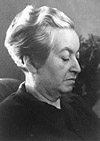
The nebula gets its "human" look partly from the fine dust lanes outlining much of the "poet's face"!
(I can't help wondering what is ionizing the Gabriela Mistral Nebula. The bright star below the poet's "chin" is an A0Ia star, a white supergiant similar to Debeb. It shouldn't be hot enough to provide any ionization. Well, maybe the small sparse cluster of blue stars inside the nebula is doing the job...)
The Gabriela Mistral Nebula also shows up very well in Iván Éder's very fine image of the Eta Carina Nebula, posted just below yours, Rich!
Finally, I was happy to see Bob and Janice Fera's attractive image of NGC 1931, a not-often-photographed nebula.
Ann
The Gabriela Mistral Nebula really bears a striking resemblance to the Chilean Nobel Prize-winning poet:

The nebula gets its "human" look partly from the fine dust lanes outlining much of the "poet's face"!
(I can't help wondering what is ionizing the Gabriela Mistral Nebula. The bright star below the poet's "chin" is an A0Ia star, a white supergiant similar to Debeb. It shouldn't be hot enough to provide any ionization. Well, maybe the small sparse cluster of blue stars inside the nebula is doing the job...)
The Gabriela Mistral Nebula also shows up very well in Iván Éder's very fine image of the Eta Carina Nebula, posted just below yours, Rich!
Finally, I was happy to see Bob and Janice Fera's attractive image of NGC 1931, a not-often-photographed nebula.
Ann
Color Commentator
-
rich bowden
- Ensign
- Posts: 14
- Joined: Wed Jan 26, 2011 1:54 pm
Re: Recent Submissions: 2011 January 24-26
Thanks Anne for your reply and commentsAnn wrote:Rich Bowden, I really like your image! NGC 3293 is one of my favorite clusters. It is really impressive-looking, concentrated and rich, and it appears to be the home of many really massive stars. Also, I like the fact that the stars appear to be "swimming" inside some blue nebulosity. Your picture also shows that the cluster is flanked by some red nebulosity "above" it and some dark nebulosity "below" it!
The Gabriela Mistral Nebula really bears a striking resemblance to the Chilean Nobel Prize-winning poet:
The nebula gets its "human" look partly from the fine dust lanes outlining much of the "poet's face"!
(I can't help wondering what is ionizing the Gabriela Mistral Nebula. The bright star below the poet's "chin" is an A0Ia star, a white supergiant similar to Debeb. It shouldn't be hot enough to provide any ionization. Well, maybe the small sparse cluster of blue stars inside the nebula is doing the job...)
The Gabriela Mistral Nebula also shows up very well in Iván Éder's very fine image of the Eta Carina Nebula, posted just below yours, Rich!
Finally, I was happy to see Bob and Janice Fera's attractive image of NGC 1931, a not-often-photographed nebula.
Ann
This is the first time I've actually imaged The Gabriela Mistral Neb; I've generally over looked it and gone for the well imaged central region of the Eta Carina nebula, many times. Or even The Jewel box, Ngc3293's look alike. Generally the wind at this time of year rarely permits me to turn the dome this way however. But if it behaves for an instant, I try to get an object down that's bright in one session.
Just a lucky night. But then I had to wait a week later to get some Ha
It certainly is a lovely area and the Gem cluster sparkles with it's young blue stars, its light reflecting off the surrounding dust... it seems to break out of the dissipating sea of HII emission from the greater Carina complex...which it swims in.
Yes, it's nice to view a wide field showing where NGC3324 actually is placed.
I think you're correct with the assumption of those young blue stars exciting the ions in the H molecular cloud..
Thanks again for input.
All the best
Rich
Re: Recent Submissions: 2011 January 24-27
IC 405: The Flaming Star Nebula
http://gallery.me.com/nheacock
Copyright: Neil Heacock
[attachment=2]IC405-4h30m-HaRGBc.jpg[/attachment][/i]
M78, Barnard's Loop, and LDN1622
http://astronomiapampeana.com.ar/foto/6 ... N1622.html
Copyright: Leonardo Julio NGC 6946: Fireworks Galaxy
http://www.malagon.webs.com
Copyright: A. Carlos Malagón
[attachment=1]NGC6946_cmalagon.jpg[/attachment][/i]
M81, M82, and the Integrated Flux Nebula
http://www.martinpughastrophotography.i ... lusIFN.jpg
Copyright: Martin Pugh
[attachment=0]M81_M82_IFN_Pugh.jpg[/attachment][/i]
http://gallery.me.com/nheacock
Copyright: Neil Heacock
[attachment=2]IC405-4h30m-HaRGBc.jpg[/attachment][/i]
M78, Barnard's Loop, and LDN1622
http://astronomiapampeana.com.ar/foto/6 ... N1622.html
Copyright: Leonardo Julio NGC 6946: Fireworks Galaxy
http://www.malagon.webs.com
Copyright: A. Carlos Malagón
[attachment=1]NGC6946_cmalagon.jpg[/attachment][/i]
M81, M82, and the Integrated Flux Nebula
http://www.martinpughastrophotography.i ... lusIFN.jpg
Copyright: Martin Pugh
[attachment=0]M81_M82_IFN_Pugh.jpg[/attachment][/i]
A closed mouth gathers no foot.
-
rich bowden
- Ensign
- Posts: 14
- Joined: Wed Jan 26, 2011 1:54 pm
Re: Recent Submissions: 2011 January 24-27
M78- Dusky and light.
http://www.baytop-observatory.com
Copyright: Rich Bowden
original image: http://www.baytop-observatory.com/ccdim ... ewth16.htm
http://www.baytop-observatory.com
Copyright: Rich Bowden
original image: http://www.baytop-observatory.com/ccdim ... ewth16.htm




